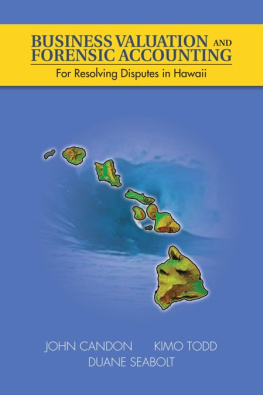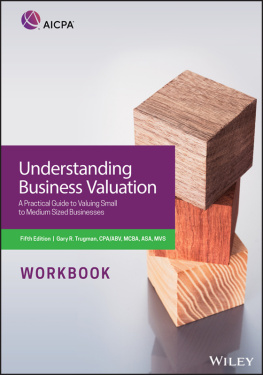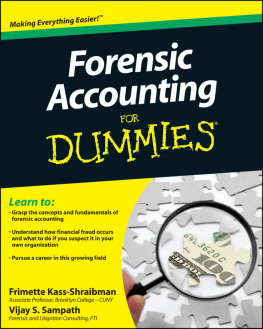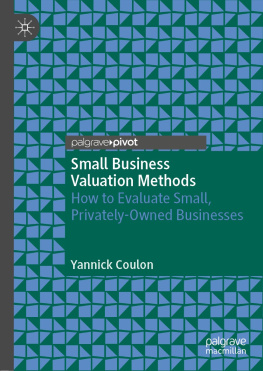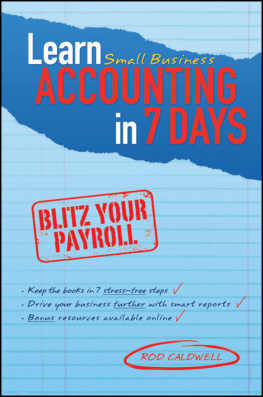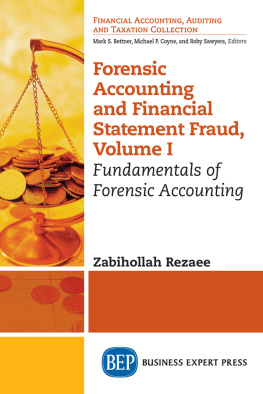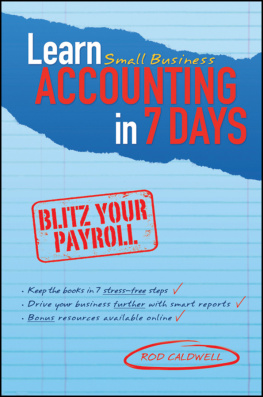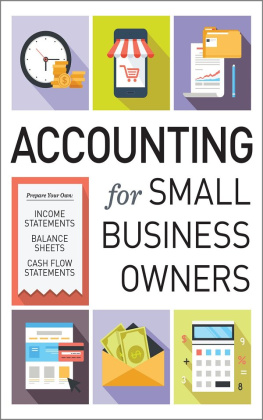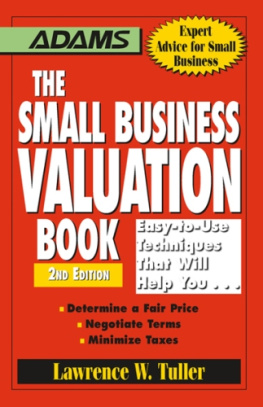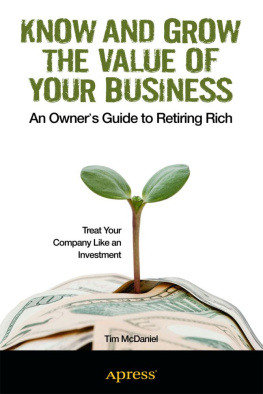Business Valuation and
Forensic Accounting
For Resolving Disputes in Hawaii
John Candon,
Kimo Todd,
Duane Seabolt

AuthorHouse
1663 Liberty Drive
Bloomington, IN 47403
www.authorhouse.com
Phone: 1-800-839-8640
2012 by John Candon, Kimo Todd, Duane Seabolt. All rights reserved.
No part of this book may be reproduced, stored in a retrieval system, or transmitted by any means without the written permission of the author.
Published by AuthorHouse 08/23/2012
ISBN: 978-1-4772-6178-1 (sc)
ISBN: 978-1-4772-6177-4 (hc)
ISBN: 978-1-4772-6176-7 (e)
Library of Congress Control Number: 2012914859
Any people depicted in stock imagery provided by Thinkstock are models, and such images are being used for illustrative purposes only.
Certain stock imagery Thinkstock.
Because of the dynamic nature of the Internet, any web addresses or links contained in this book may have changed since publication and may no longer be valid. The views expressed in this work are solely those of the author and do not necessarily reflect the views of the publisher, and the publisher hereby disclaims any responsibility for them.
Contents
This book is dedicated to the college professors, authors, and professional colleagues who have generously shared their knowledge with us, to those who have thoughtfully mentored us throughout our careers, andmost of allto our wives and children.
-John Candon
Kimo Todd
Duane Seabolt
HONOLULU, HI 2012
This book is designed to meet the needs of Hawaii residents involved in settling disputes over the values of businesses and business interests. It may be useful to both the disputants and their advisers, including their attorneys, accountants, and financial advisers.
Most often these sorts of disputes come about because co-owners of businesses are going their separate ways. It may be because of a pending divorce. It may be due to a disagreement among the co-owners. Whatever the motivation, we hope this book will help the parties and their advisors chart their future course.
Our goal was to author a brief, accessible discussion of business valuation and forensic accounting. Our respective bookshelves contain dozens of thorough, highly-detailed texts on business valuation and forensic accounting that have been written for practitioners. They are, of course, useful in our profession. They are also, unfortunately, much too thorough and jargon laden for the average layperson. This book sacrifices details in the interest of being easier to access. Consider it a primer.
We begin with a brief summary of the major business valuation professional credentials available to valuation analysts and the related professional standards. We also provide a brief description of the process involved in developing an opinion of the value of a business interest.
We also summarize, from a valuation analysts point of view, the case law that guides the valuation of businesses in Hawaii in the context of divorce. As we are not attorneys, we encourage parties to also consult their attorneys on these issues. Please also take care to consider any subsequent court decisions that may be relevant.
A short, introductory discussion of forensic accounting has been included because we have found that one or more parties to financial disputes sometimes suspect that someone is hiding the financial ball. From time to time, we have found it to be true. We have provided a description of the major professional credentials and standards, some basic information on accounting and financial statements, a list of red flags, a few examples of the sorts of misappropriation experienced by business owners, and examples of the techniques that can be employed in investigations.
FUNDAMENTALS OF
VALUING A BUSINESS
This chapter very briefly describes business valuation, which is also called business appraisal. More in depth discussions of the topic are available in a variety of sources, including Valuing a Business by Shannon Pratt et al and Understanding Business Valuation by Gary Trugman. There are also business valuation texts directed at specific readers, such as The Lawyers Business Valuation Handbook, which is published by the American Bar Association for attorneys. Our goal here is to open the door, providing you with an introductory look.
Prior to the 1920s, business valuation was more an art than a science. Buyers and sellers used their experience, wits, knowledge and best judgment to estimate the value of a business interest. Its likely that no one trading stocks back then would have agreed with that statement. Modern day appraisers, however, have a wide array of tools available that were not available in the past. Among those tools are standards that provide a structure for conducting a business valuation study.
The U.S. Prohibition Act, believe it or not, was the catalyst for the first formal set of standards for developing an opinion of value for a business. The economic losses resulting from the sudden demise of the liquor industry in 1919 were tax deductible. Intent, it appears, on fostering reliable valuations, the Internal Revenue Service began publishing guidance on valuing the lost businesses. The first such guidance was Appeals and Revenue Memorandum No. 34, which is usually referred to as ARM 34. This publication in 1920 was only the beginning of many IRS rulings, IRS orders and Court opinions about valuing businesses. Revenue Rulings 59-60 and 68-690, for instance, address the research required in a business valuation and are often cited in business valuation reports in words more or less like the following:
1.Analyze the characteristics and history of the subject enterprise and the subject interest, including: past transactions; the size of the subject interest relative to the total ownership interest, other rights and obligations, and any agreements restricting transferability or otherwise affecting value and marketability.
2.Analyze the financial condition and operating results, including: historical operating results; earnings capacity; distributions paid historically and distribution-paying capacity; balance sheets, historical and as of the Valuation Date; assets, liabilities, and book value; the liquidation value of the subject interests assets; and the outlook as of the Valuation Date.
3.Consider the economic outlook in general and the condition and outlook of the relevant industry in particular.
4.Review the history and management of the subject interest, the nature of the business, factors affecting the business, whether or not the enterprise has goodwill or other intangible value, and its prospects for the future.
5.Review published market data and other available public information relating to the Company and its industry, including: relevant historical trends; current performance indicators; and the outlook as of the Valuation Date for the economy and capital markets.
6.Review other relevant factors.
Over the years, as business appraisers began to form professional societies and associations, they adopted their own standards for developing and reporting on an opinion of value. Each of the several societies, institutes and associations that serve business appraisers requires its members to follow their respective professional standards and ethics codes, which include requirements that the appraiser be objective and independent of their client. For example, the American Institute of Certified Public Accountants Statement on Standards for Valuation Services includes the following about independence and objectivity:
The AICPA Code of Professional Conduct requires objectivity in the performance of all professional services, including valuation engagements. Objectivity is a state of mind. The principle of objectivity imposes the obligation to be impartial, intellectually honest, disinterested, and free from conflicts of interest. If necessary, where a potential conflict of interest may exist, a valuation appraiser should make the disclosures and obtain consent as required under Interpretation No. 102-2, Conflicts of Interest, under Rule 102, Integrity and Objectivity (AICPA, Professional Standards , vol. 2, ET sec. 102.03).
Next page
